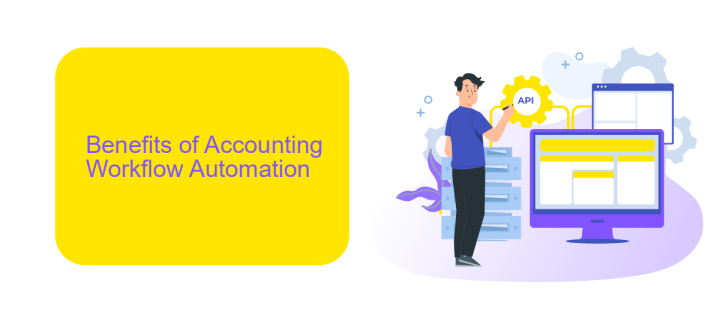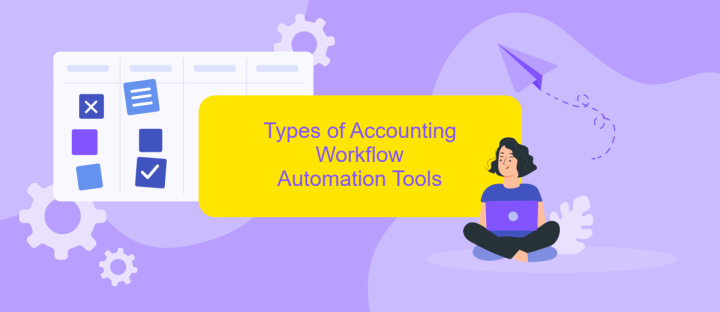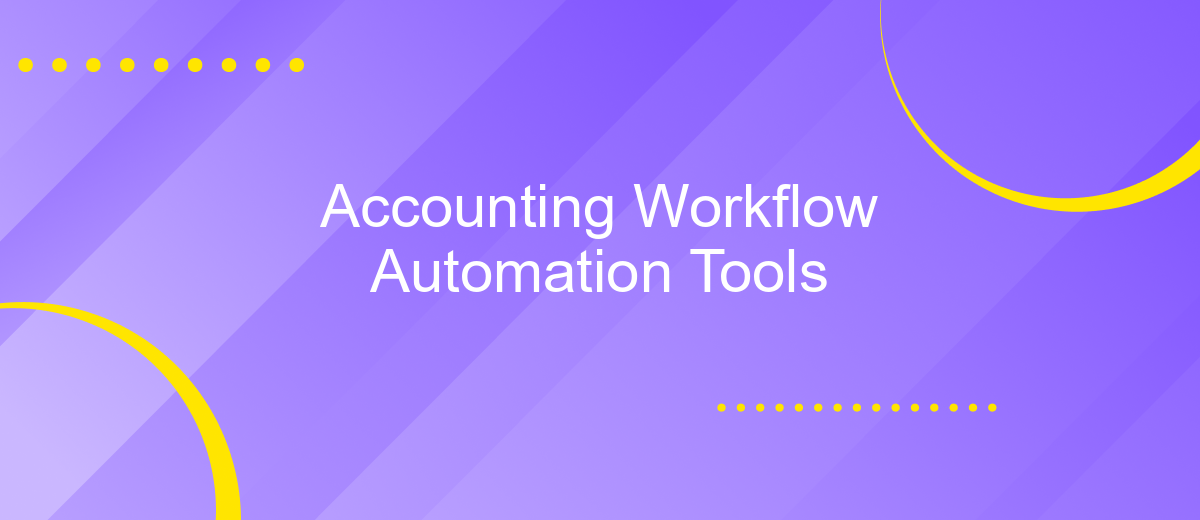Accounting Workflow Automation Tools
In today's fast-paced business environment, accounting workflow automation tools have become essential for enhancing efficiency and accuracy. These tools streamline financial processes, reduce manual errors, and save valuable time, allowing accountants to focus on more strategic tasks. This article explores the top accounting workflow automation tools available, highlighting their features, benefits, and how they can transform your accounting practices.
Introduction to Accounting Workflow Automation Tools
Accounting workflow automation tools are revolutionizing the way businesses handle their financial processes. By automating repetitive tasks, these tools help to reduce errors, save time, and increase efficiency, allowing accountants to focus on more strategic activities. The integration of such tools into existing systems is straightforward and offers immediate benefits.
- Improved accuracy and reduced human error
- Time-saving through automation of repetitive tasks
- Enhanced compliance and audit readiness
- Real-time financial data and reporting
One of the key aspects of implementing accounting workflow automation is seamless integration with other business systems. Services like ApiX-Drive facilitate this by enabling easy and quick integration of various applications without the need for coding. This ensures that all financial data is synchronized and accessible across platforms, further enhancing the efficiency and effectiveness of accounting operations.
Benefits of Accounting Workflow Automation

Implementing accounting workflow automation tools offers numerous benefits, including increased efficiency and accuracy. By automating repetitive tasks such as data entry, invoice processing, and financial reporting, businesses can significantly reduce the time and effort required for these activities. This not only frees up valuable resources but also minimizes the risk of human error, leading to more accurate financial records and improved decision-making.
Another major advantage is the seamless integration with other business systems. Tools like ApiX-Drive facilitate the integration of various platforms, enabling smooth data flow between accounting software and other business applications. This ensures that financial data is always up-to-date and accessible, enhancing overall business operations. Additionally, automation tools can provide real-time analytics and insights, allowing businesses to monitor financial performance and make informed strategic decisions. Overall, accounting workflow automation tools streamline processes, boost productivity, and provide a competitive edge.
Types of Accounting Workflow Automation Tools

Accounting workflow automation tools streamline and enhance the efficiency of various accounting processes. These tools can be categorized into several types, each serving a specific function in the accounting workflow.
- Invoicing and Billing Automation: These tools automate the creation, sending, and tracking of invoices, ensuring timely payments and reducing manual errors.
- Expense Management: Tools in this category help automate the tracking, approval, and reimbursement of employee expenses, simplifying expense reporting.
- Financial Reporting: Automation tools generate accurate financial reports and statements, providing real-time insights into the company's financial health.
- Payroll Automation: These tools handle payroll calculations, tax deductions, and direct deposits, ensuring compliance and accuracy in employee payments.
- Integration Tools: Services like ApiX-Drive facilitate seamless integration between various accounting software and other business applications, enabling smooth data flow and reducing manual data entry.
By leveraging these types of accounting workflow automation tools, businesses can achieve greater accuracy, efficiency, and compliance in their accounting operations. This not only saves time and reduces errors but also allows accounting professionals to focus on more strategic tasks.
Implementation and Considerations

Implementing accounting workflow automation tools requires careful planning and consideration to ensure seamless integration and maximum efficiency. Begin by assessing your current accounting processes and identifying areas where automation can provide the most significant benefits. This initial assessment will help in selecting the right tools that align with your specific needs.
Next, consider the integration capabilities of the chosen tools with your existing accounting software and other business applications. ApiX-Drive, for instance, offers robust integration solutions that can streamline data flow between various systems, reducing manual entry and minimizing errors. Ensuring compatibility and ease of integration is crucial for a smooth transition to automated workflows.
- Evaluate the scalability of the automation tools to accommodate future growth.
- Ensure the tools offer robust security features to protect sensitive financial data.
- Provide adequate training to your team to maximize the benefits of the new system.
- Regularly review and update the automated workflows to maintain efficiency.
By thoughtfully implementing accounting workflow automation tools and considering these key factors, businesses can enhance their operational efficiency, reduce errors, and focus more on strategic financial planning. Continuous monitoring and optimization of these tools will ensure they remain effective and aligned with evolving business needs.


Conclusion
In conclusion, accounting workflow automation tools significantly enhance the efficiency and accuracy of financial processes. By automating repetitive tasks, these tools free up valuable time for accountants to focus on more strategic activities. They also minimize the risk of human error, ensuring that financial data is accurate and up-to-date, which is crucial for making informed business decisions.
Moreover, the integration of these tools with other business systems is essential for seamless operations. Services like ApiX-Drive facilitate these integrations, allowing for smooth data flow between different platforms. This not only streamlines workflows but also provides a holistic view of the business's financial health. As businesses continue to evolve, adopting accounting workflow automation tools will be key to staying competitive and efficient in the ever-changing financial landscape.
FAQ
What is accounting workflow automation?
How can accounting workflow automation benefit my business?
What types of accounting tasks can be automated?
How do I integrate accounting workflow automation tools with my existing systems?
Is it difficult to set up accounting workflow automation?
Apix-Drive will help optimize business processes, save you from a lot of routine tasks and unnecessary costs for automation, attracting additional specialists. Try setting up a free test connection with ApiX-Drive and see for yourself. Now you have to think about where to invest the freed time and money!

